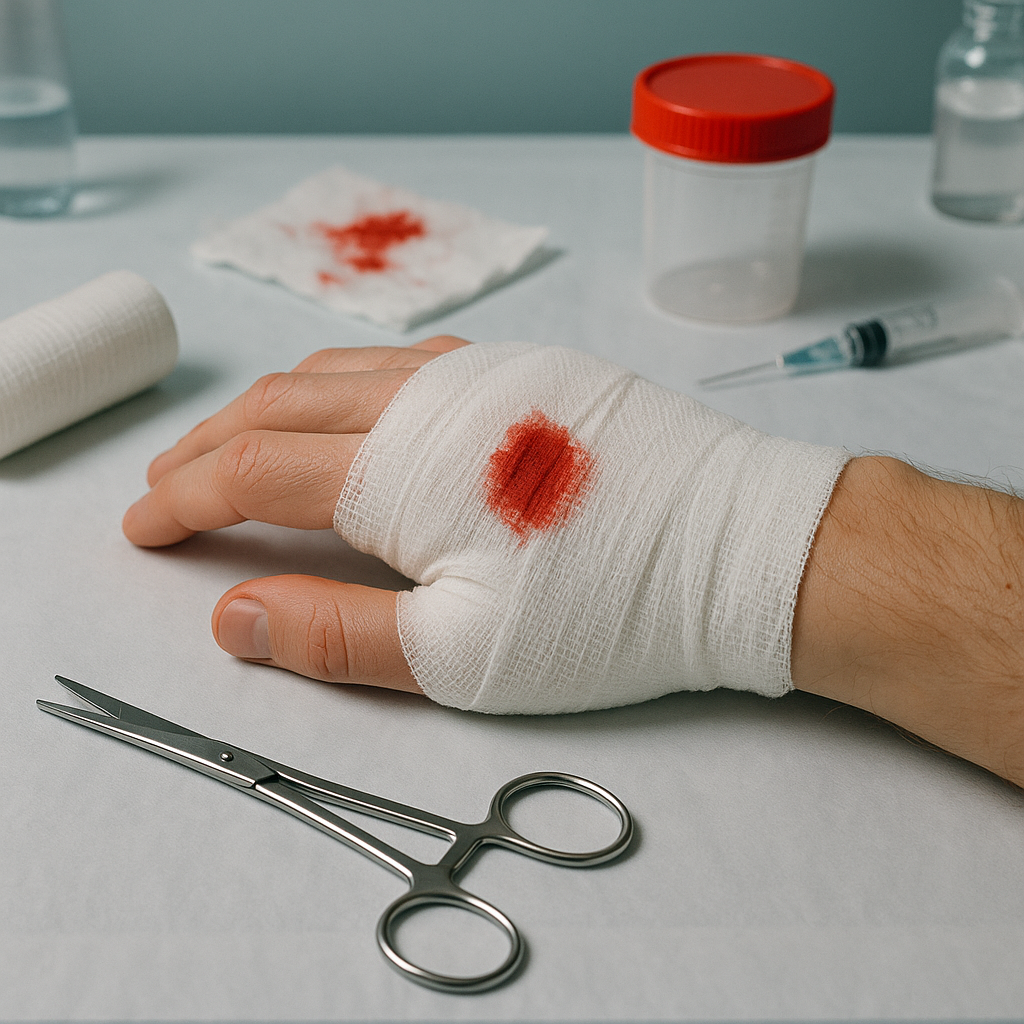Home » Injury Type » Arm Injuries: Types, Causes, and Legal Options » Severe Laceration: Types, Causes, and Legal Options
Understanding and Overcoming Severe Laceration Injuries
A severe laceration can cause deep tissue damage and long-term loss of hand or arm function. Legal help ensures victims receive proper treatment, rehabilitation, and financial recovery.
Comprehensive Guide to Severe Laceration Injuries
Lacerations are deep cuts that often tear muscles, tendons, or nerves, leading to bleeding, scarring, and loss of mobility. These wounds require immediate medical attention and may result in permanent impairment.

Mild to Severe Lacerations
Minor cuts may heal quickly, but deep lacerations often demand surgical repair and physical therapy.

Common Symptoms of Severe Lacerations
Heavy bleeding, exposed tissue, numbness, and restricted movement often indicate serious injury.

Post-Injury Complications
Untreated lacerations can cause infections, nerve damage, or long-term disability that affects daily life.

Common Types of Severe Laceration Injuries
Not all lacerations affect the body the same way. Doctors classify them by depth, severity, and location. Legal guidance helps victims secure fair compensation for medical treatment and recovery.

Deep Tissue Lacerations
These involve muscles or tendons, often caused by sharp machinery or tools.
Learn More

Nerve-Related Lacerations
Cuts that sever nerves in the hands or arms may cause chronic pain or loss of feeling.
Learn More

Crush-Induced Lacerations
Severe trauma can combine tearing and crushing, making surgery and grafting necessary.
Learn More

Recurrent Wound Complications
Repeated injury or improper healing may cause reopening or infection of the wound.
Learn More
Causes of Severe Laceration Injuries
Severe lacerations can result from workplace accidents, vehicle collisions, or unsafe equipment use.

Car Accidents
Shattered glass or twisted metal can cause deep cuts to arms and hands during impact.

Workplace Accidents
Machinery, sharp tools, or unsafe conditions often lead to severe hand or arm lacerations

Slip and Fall Accidents
Falling onto sharp edges or broken glass can result in deep and bleeding lacerations.

Sports Injuries
Contact sports or broken equipment can cause tearing injuries needing emergency care.

Medical Malpractice
Surgical errors or improper wound treatment can worsen tissue damage.

Assaults and Violence
Intentional harm with weapons or sharp objects often leads to severe, life-altering lacerations.
Understanding the cause of your severe laceration is crucial for determining liability and securing proper compensation.
Role of a Severe Laceration Injury Lawyer
A skilled lawyer helps victims recover compensation for surgery, therapy, and lost work while holding negligent parties accountable.

Case Evaluation
Attorneys assess the cause of injury, medical records, and evidence to build a strong claim.
- Review medical records
- Collect accident reports
- Obtain expert testimony

Proving Negligence
Lawyers gather witness statements, expert reports, and photos to link the injury to fault.
- Identify responsible party
- Demonstrate breach of duty
- Prove causation of injury

Calculating Damages
Compensation includes medical costs, lost income, and future rehabilitation needs.
- Calculate medical costs
- Estimate future earnings loss
- Include pain and suffering
The Role of Legal Support
Knapp Moss lawyers advocate for clients dealing with severe laceration cases, ensuring they receive the care and justice they deserve.

Legal Considerations in Severe Laceration Cases
Legal claims for laceration injuries require careful documentation, evidence, and medical evaluation to achieve maximum compensation.

Statute of Limitations
Claims must be filed within specific deadlines, or victims may lose their right to recovery.
- State-specific deadlines
- Filing requirements
- Time limitations

Lost Wages
Serious hand or arm injuries often prevent victims from working, leading to substantial financial loss.
- Accident reports
- Witness statements
- Medical documentation

Pain and Suffering
Victims may be compensated for emotional distress, scarring, and permanent functional loss.
- Medical history impact
- Documentation needs
- Claim evaluation
Frequently Asked Questions
Find answers to common questions about
severe laceration cases and our legal services.
- Still have questions? Contact our support team
What makes a laceration “severe”?
A laceration is severe when it involves deep tissue, tendons, or nerves and requires surgical care.
Can severe lacerations cause permanent damage?
Yes. Deep cuts can cause nerve loss, chronic pain, or reduced arm and hand movement.
Should I see a specialist after a deep cut?
Yes. An orthopedic or plastic surgeon ensures proper wound repair and function restoration.
How much compensation can I recover from my severe laceration?
Compensation depends on medical costs, lost wages, and how much the injury impacts daily life.


